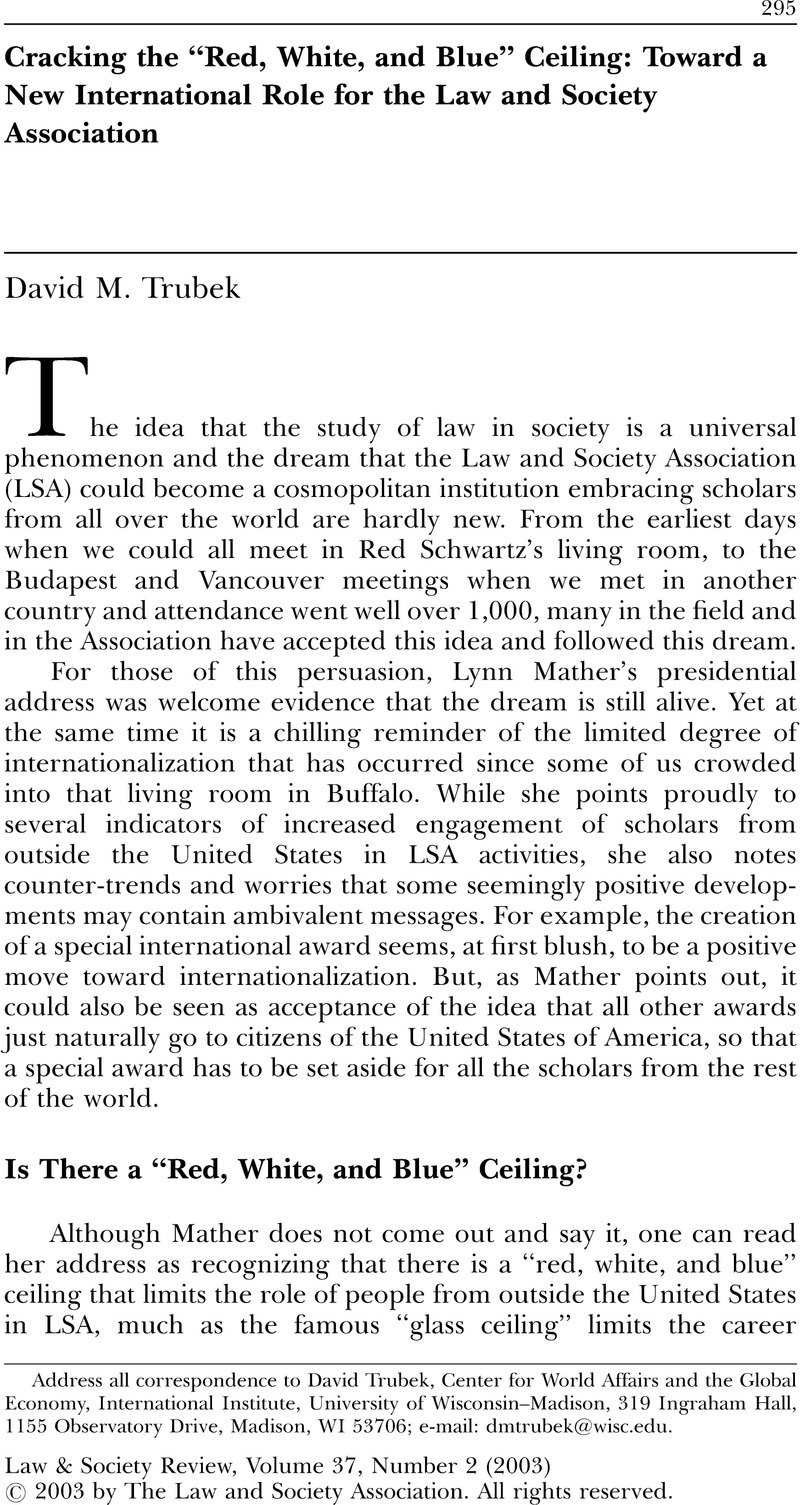Crossref Citations
This article has been cited by the following publications. This list is generated based on data provided by Crossref.
Erlanger, Howard S.
2005.
Organizations, Institutions, and the Story of Shmuel: Reflections on the 40th Anniversary of the Law and Society Association.
Law & Society Review,
Vol. 39,
Issue. 1,
p.
1.
Taffoni, Gaia
2021.
The Politics of EU Judicial Support after the Arab Spring.
p.
1.



